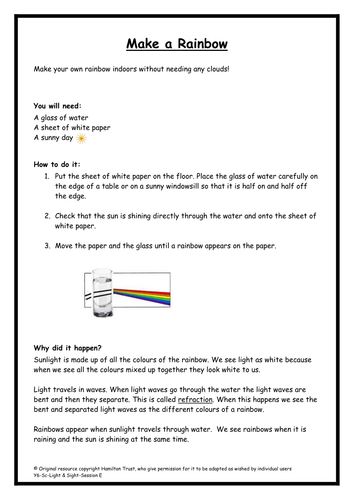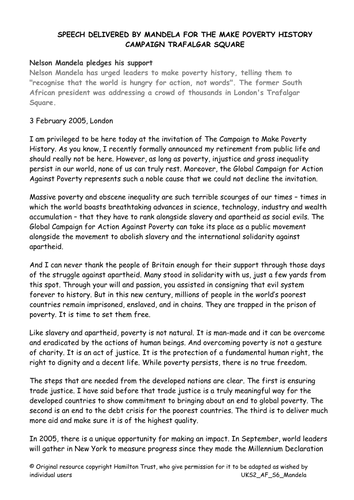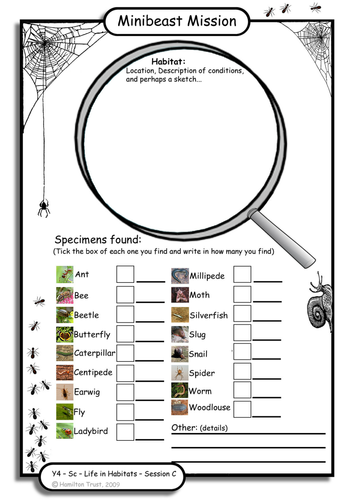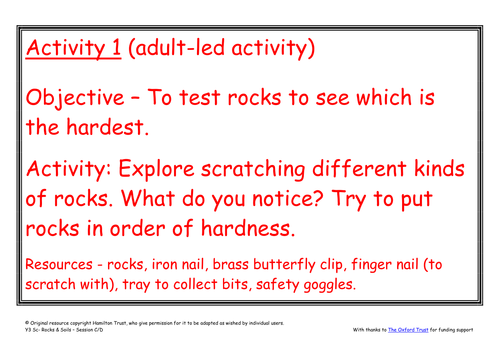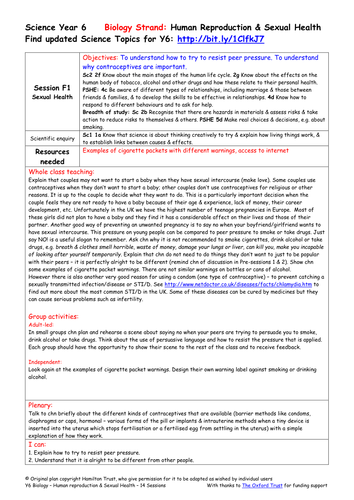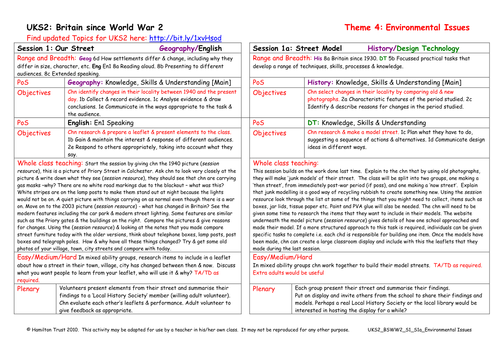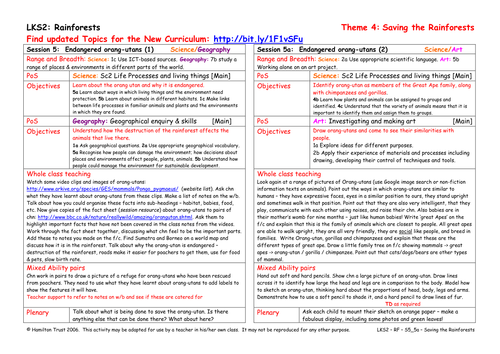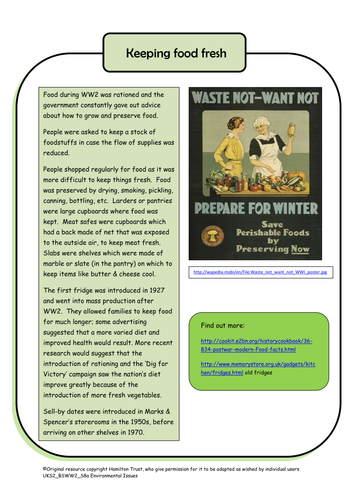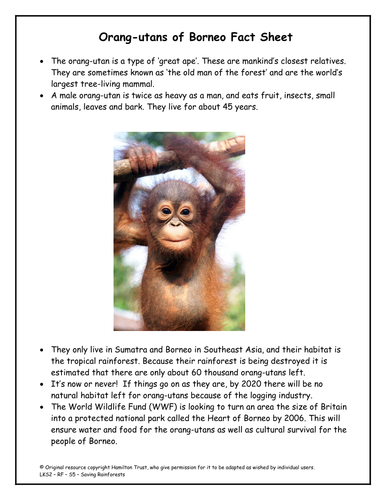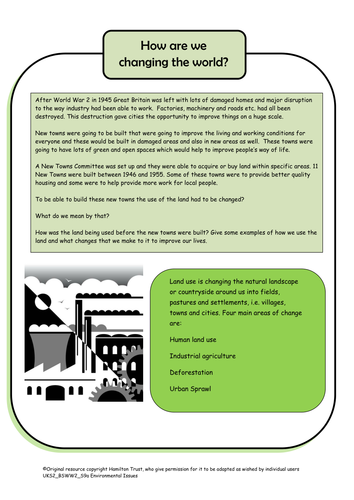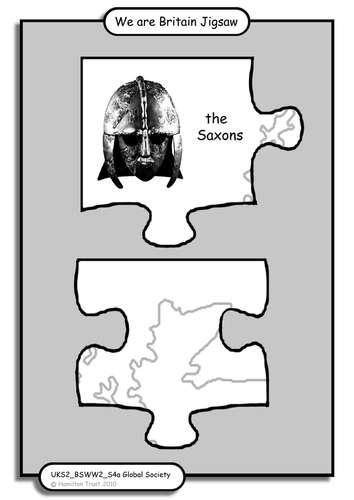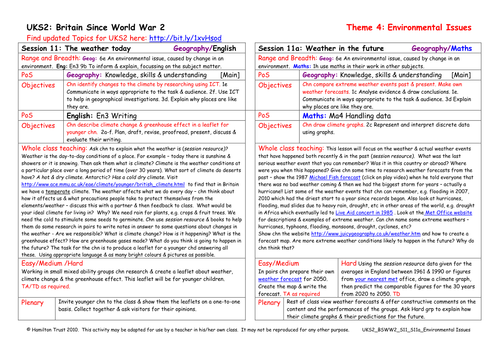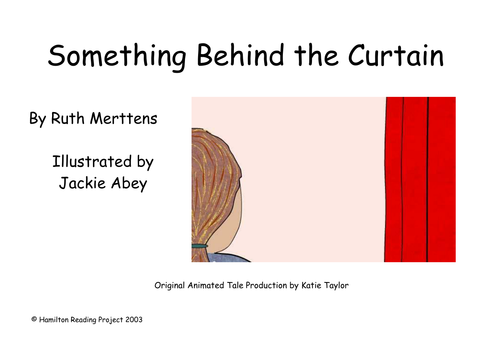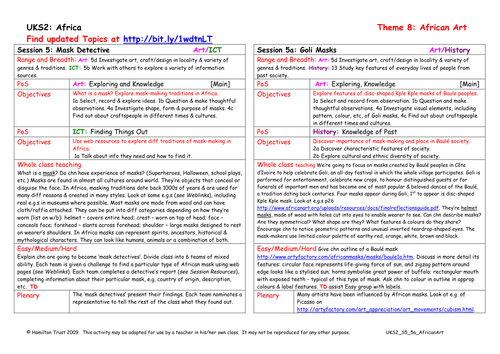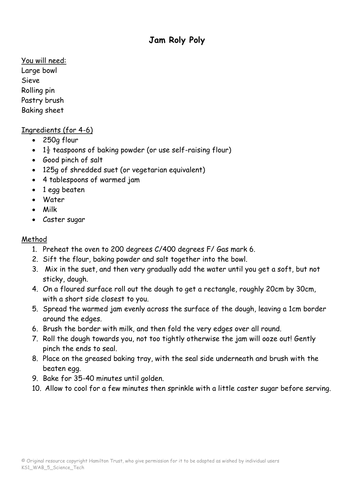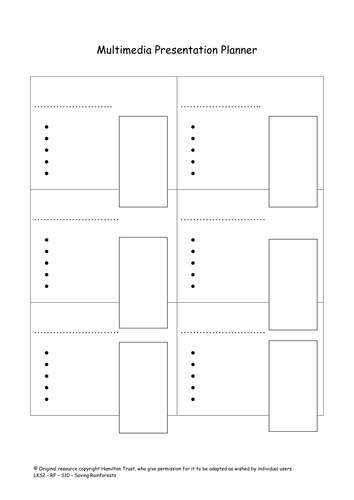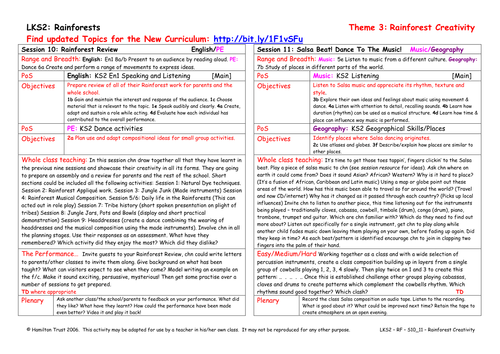
397Uploads
10041k+Views
11644k+Downloads
All resources

'Insight into Sight'
It’s time to prepare exhibits for a Science Fair called ‘Insight into Sight’ which brings together many of the concepts introduced in this block. In this session children create artefacts and prepare their explanations.
Suitable for Y6 pupils.

Mandela and Poverty
Children study a Mandela speech on poverty and analyse why it’s so importance in terms of content, context and process. Children plan and write their own speech on the right to education.
Suitable for years 5 and 6.

Field trip!
Organise a field trip in the school grounds, in the local environment or further afield. Children observe and/or collect minibeasts and record them and any evidence (including plants) to indicate why the habitat is suitable for those organisms.
Suitable for Year 4 pupils.

Explore rocks further
Take part in more practical workshop activities including separating sand and stones by sieving, using ICT to research rocks, looking up vocabulary in dictionaries, sorting and naming rocks and testing the effect of vinegar on rocks.
Suitable for Y3 pupils.

Sexual health
Session 1 - Have discussion about contraceptives as a way of preventing an unwanted pregnancy, but also explain that they can help protect against sexually transmitted infections and diseases. Use drama to practise saying no to peer pressure for smoking, alcohol or drugs. Children design warning labels.
Session 2 - Discuss one sexually transmitted disease / infection in more detail – HIV / Aids. Ensure children understand difference between having the virus and the syndrome. Watch a video by children living with an HIV mother and discuss stigma involved with HIV / Aids. Look at statistics and discuss Memory Books and World Aids Day.
Suitable for Y6 pupils.

Our Street
Children look at streets around the school, houses, shops and street furniture. Compare today with the 1940s. Use old photos of home town/village or city as resources. Children produce a leaflet showing how their street has changed between then and now.

Endangered orang-utans (2)
Orang-utans are humans closest relative! Children find out more about the great ape and other great apes like chimps and gorillas, before using sketching and shading techniques to draw Orang-utans for display.

Keeping Food Fresh
Food was rationed during WW2 and the government constantly gave out advice about how to grow and preserve food using various methods. Fridges went into mass production after WW2. Children explore a BBC site – rations, shops, a quiz, etc!

Endangered orang-utans (1)
Using the internet and fact sheets children find out more about the Orang-utans and why they have become endangered. What is being done to protect them and their habitats? What else can be done?

How Are We Changing The World?
Children consider ways in which we use the land and how it has changed since WW2. The four main ways are human land use, industrial agriculture, deforestation and urban sprawl.
Children help decide the future of the imaginary Grousebrook Valley in the Peak District NP.

Jigsaw
Ensure that children understand that all the people who have come to live here since Roman times have made an impact on Britain. Children research one country that people have immigrated from and add a picture and label to a large class version of the jigsaw.

Weather In The Future
Discuss extreme weather events from present and past. Using data they have been given about England’s weather over the past 30 years, some children draw a climate graph and predict what will happen in the future. Other children create a weather forecast for 2050.

Reception Non-fiction (Families): Names, captions and notices (weeks 1-2)
Discuss families and the various roles within them, read the following stories My Mum, My Dad, Me and You, all of which are by Anthony Browne and Don’t Let the Pigeon Drive the Bus and Don’t Let the Pigeon Stay Up Late by Mo Willems. Children write a book about someone who cares for them using similes and also notices for family members. They learn their address too. Activities include paper people, house plans, family portraits and names.

Goli Masks
Narrowing the focus, children discover more about the features of a Goli mask used in all-day festivals of the Baulé peoples.
Children carry out an investigation into stylistic elements of the mask and their meanings and purpose.

The Festival of Britain
Children watch TV footage and research the festival of Britain. They make a postcard of their favourite part and write a message on the back about what they liked.

Daily Life
Children describe their daily lives. They think about the things they do regularly each day, each week and at weekends. Look at the features of diaries and then children keep a diary for a week to share with their link school friends. Compare with lives of other children.
Suitable for years 5 and 6.

Cooking A 1950's Meal
Children have the opportunity to cook one course of a typical 1950s meal or to set the table. Discuss safety measures before children cook the shepherds’ pie, rice pudding or sponge pudding and custard. Will everyone have a taste of all three dishes?

See for yourself!
Brief introduction to the Convention of Children’s Rights is followed by a close look at the book We Are All Born Free. Watch and discuss short cartoons from UNICEF that illustrate different Human Rights. Children give reasons for their choice of best cartoon.
Suitable for years 5 and 6.

Multi-media presentation - Saving rainforest
In this session children look at a multi media presentation prepared by you which has some good bits and some that need improving!
Children then use what they have learnt to plan and then start work on their own using notes from previous sessions.

Rainforest Review
This session brings together all the parts of the rainforest creativity theme. From music created with made instruments, dance and the wearing of headdresses to the displaying and showing of pots. Celebrate everything that has been achieved.

